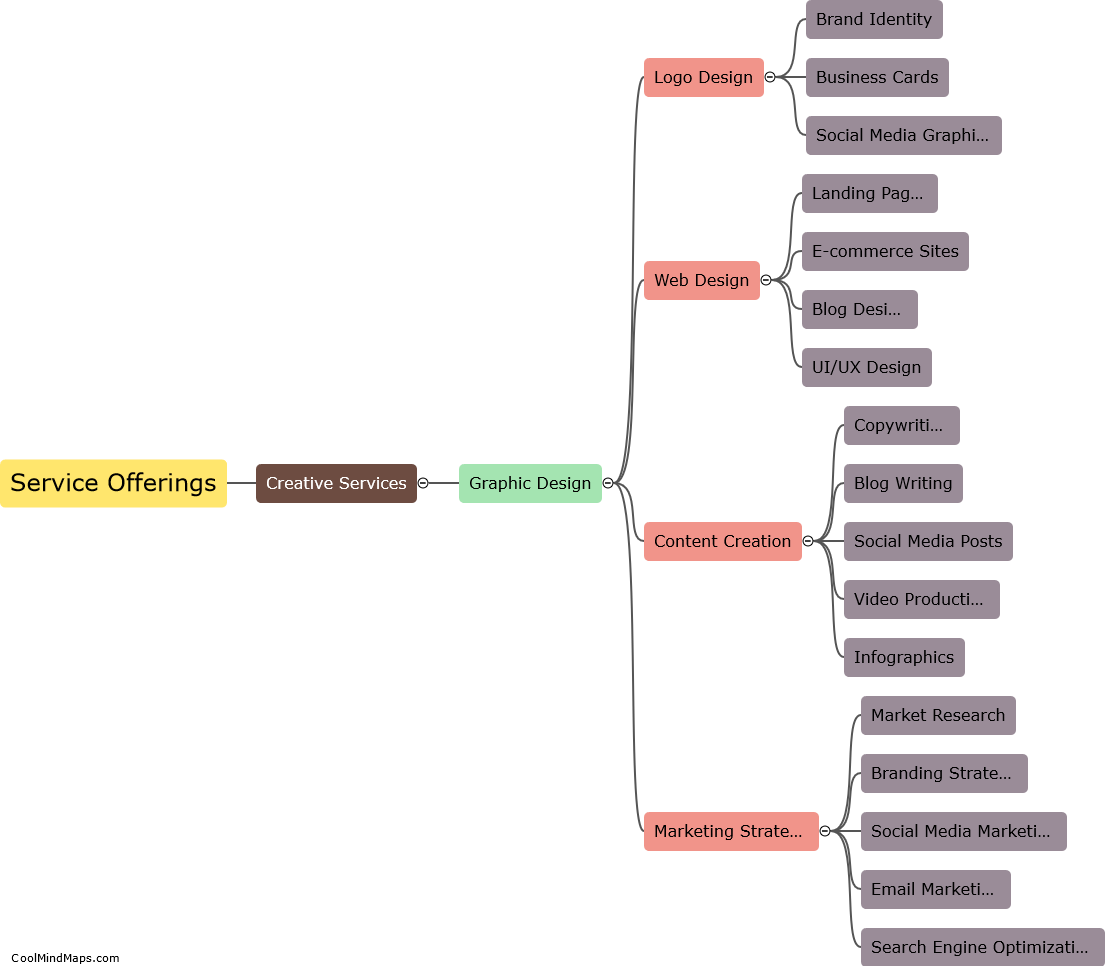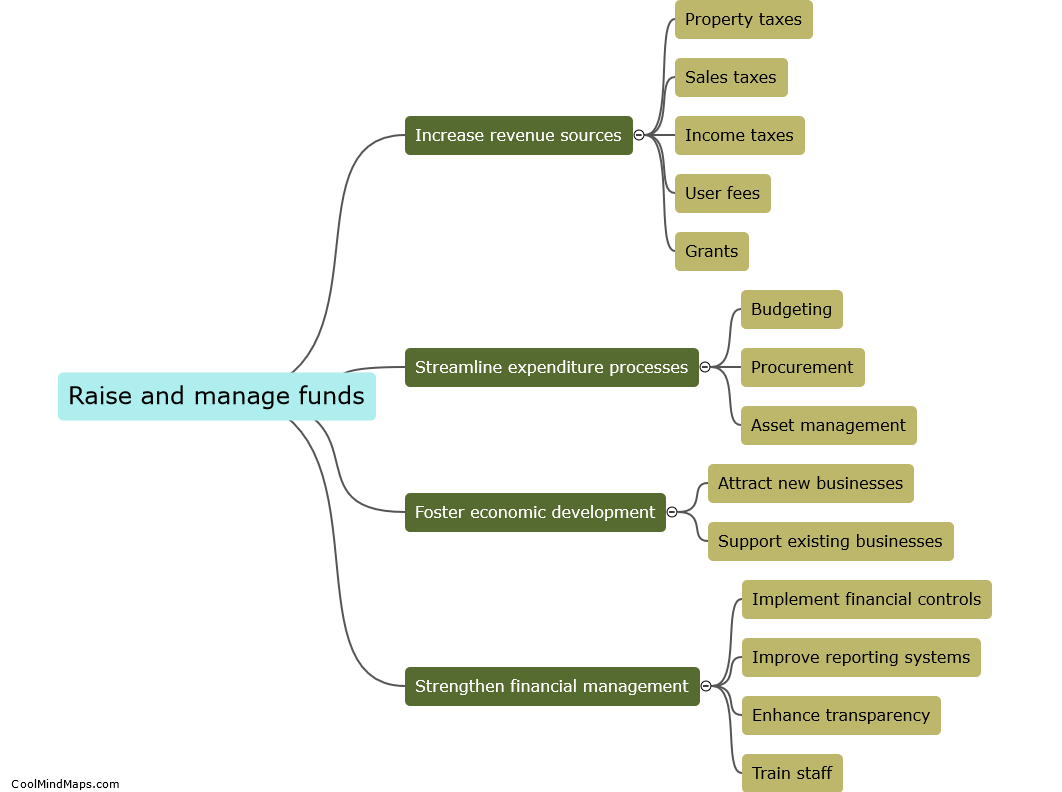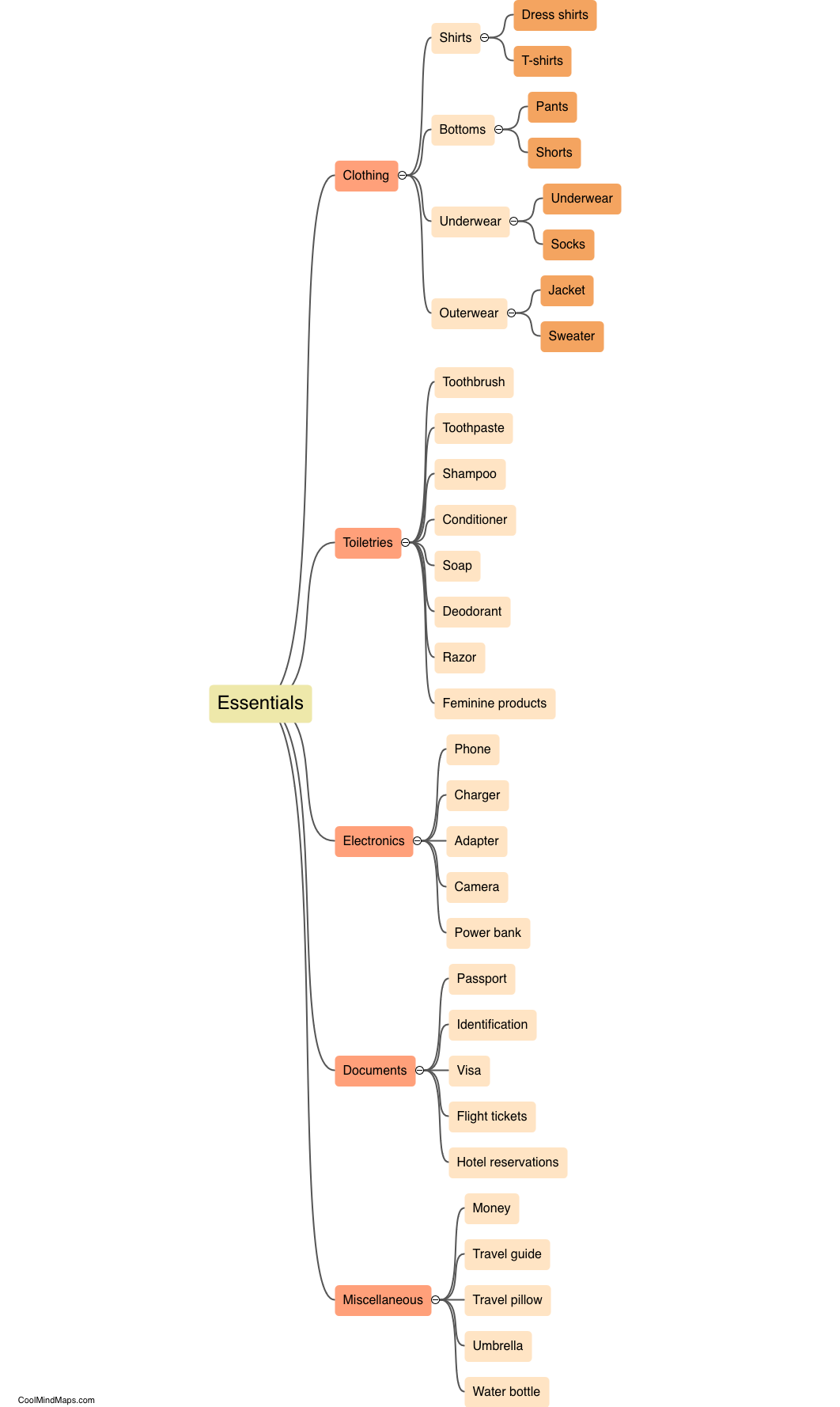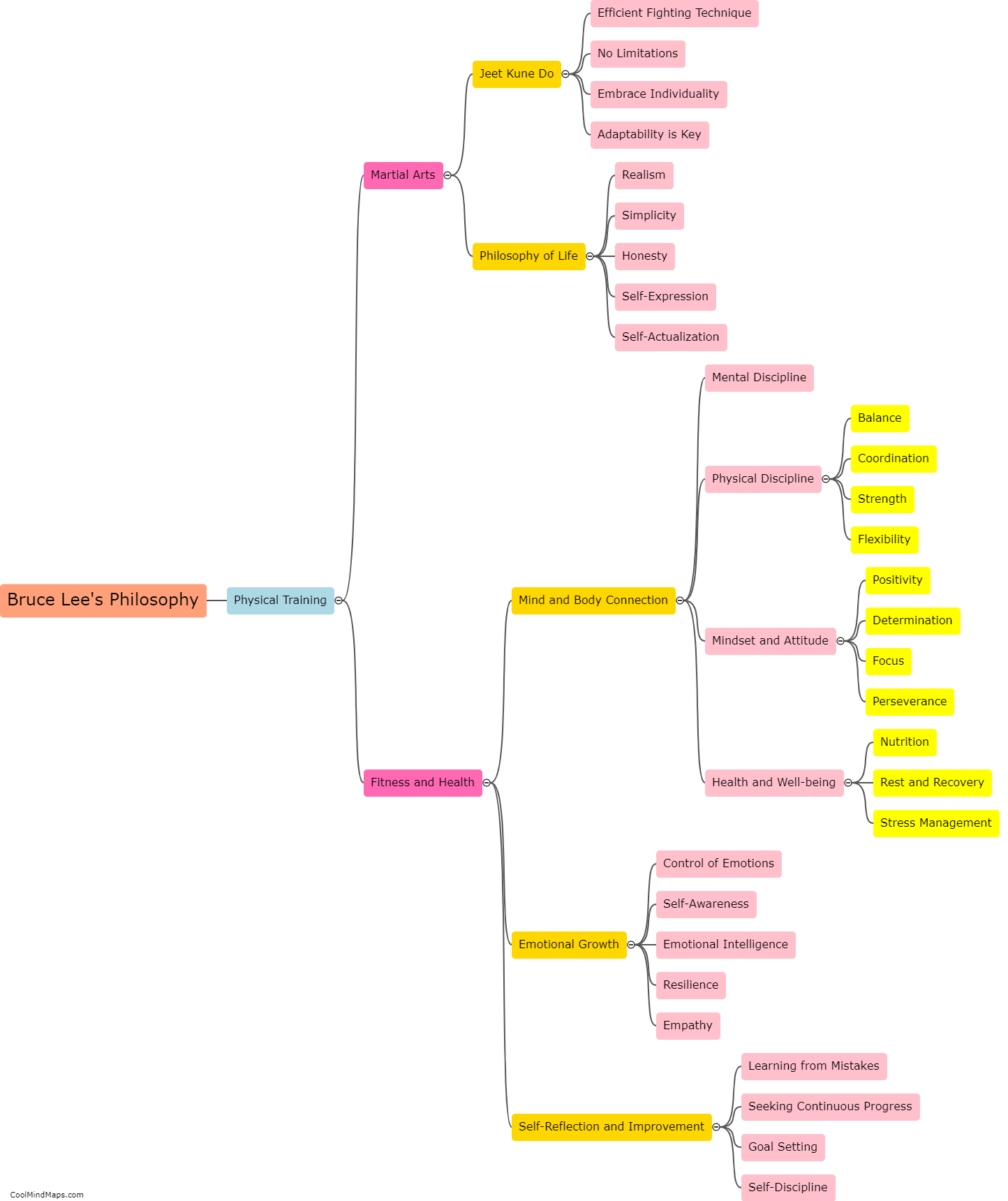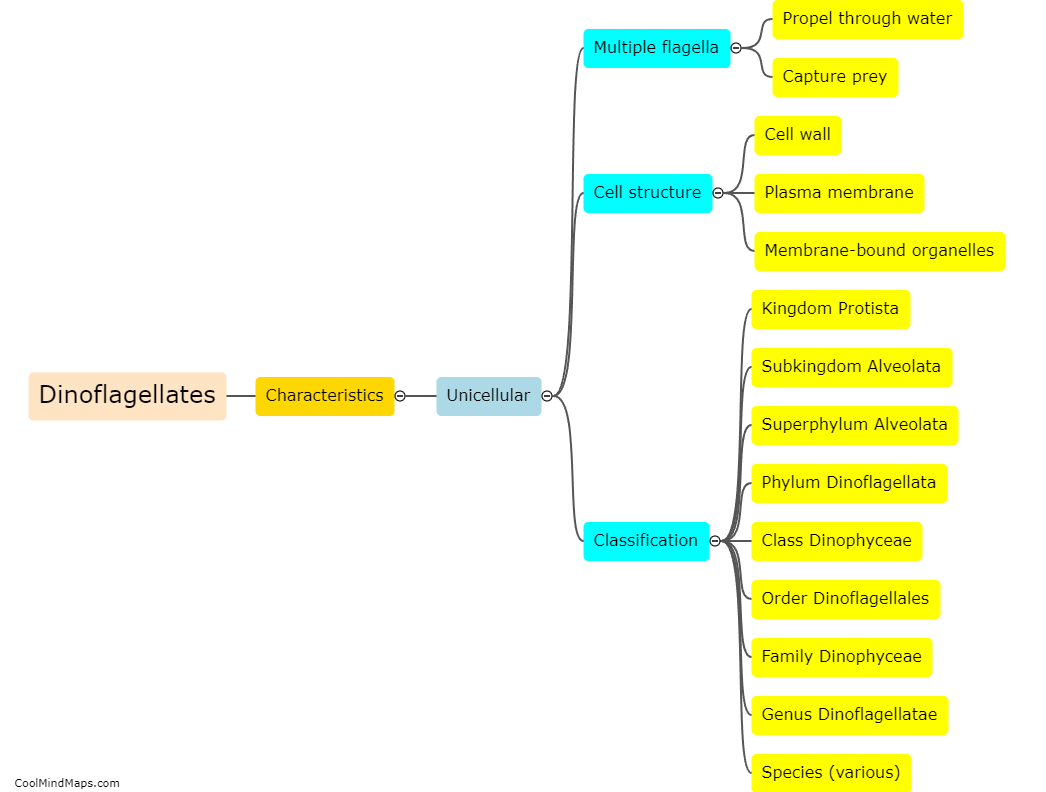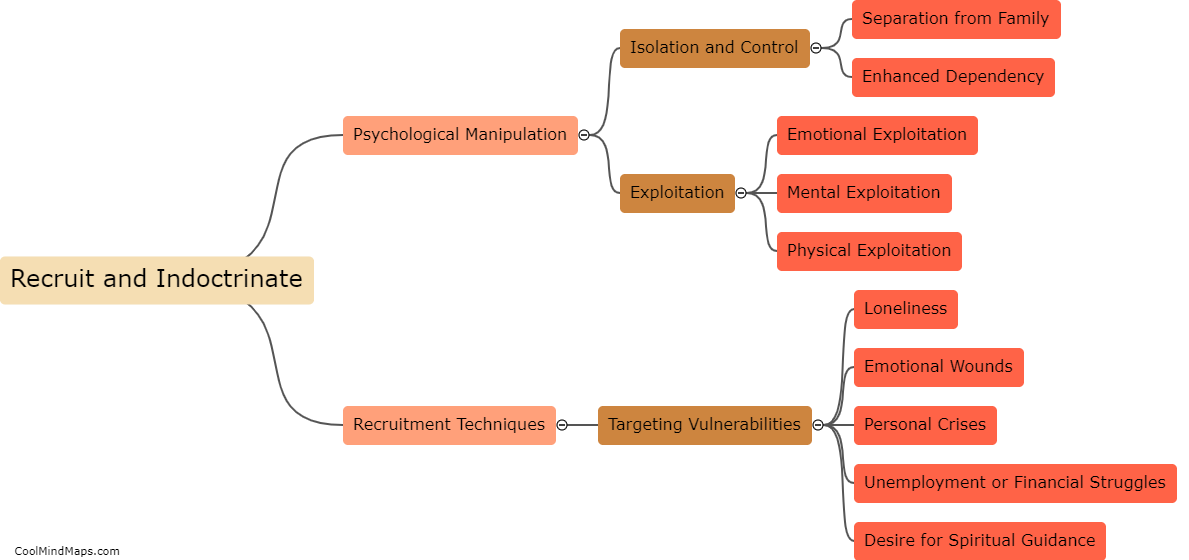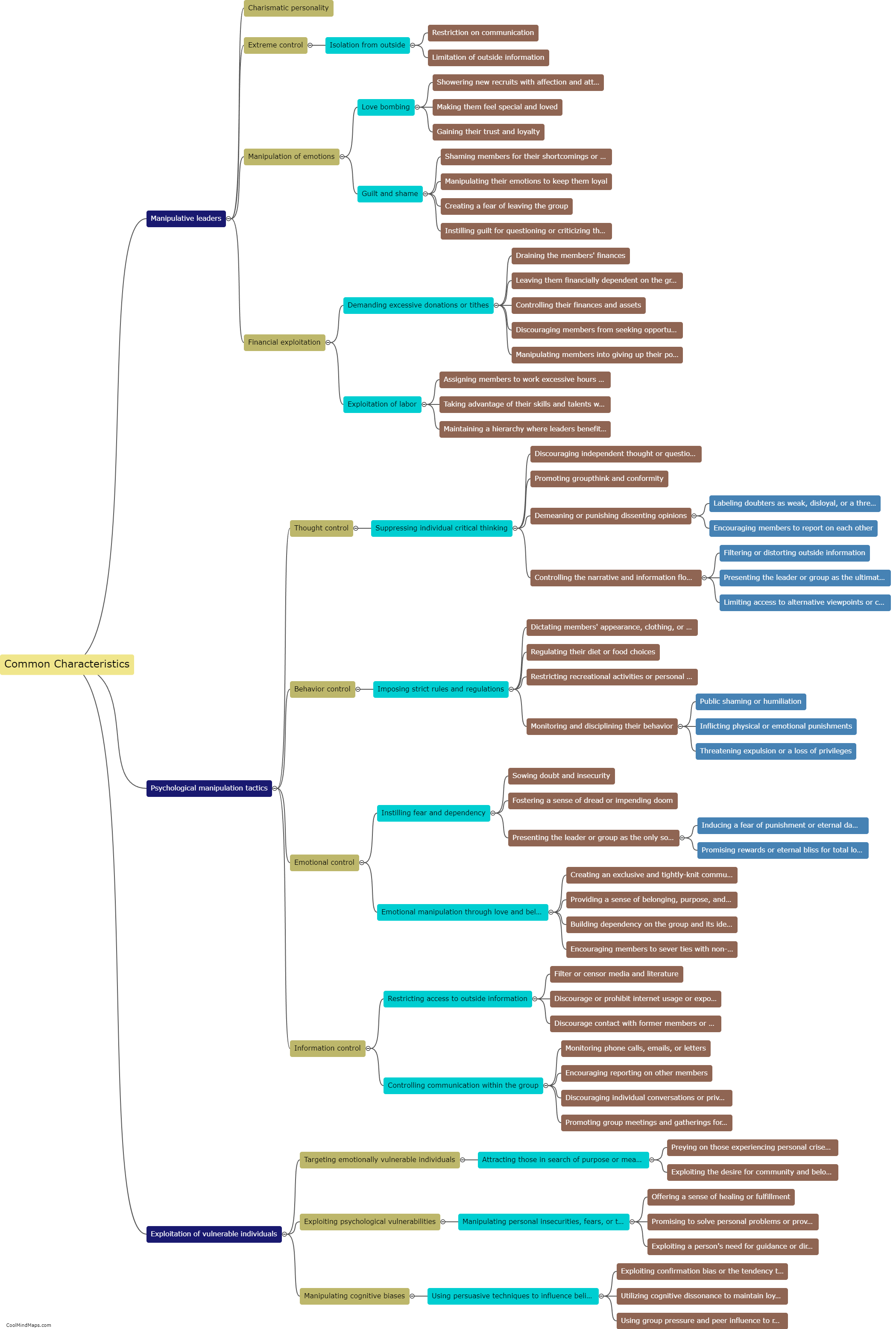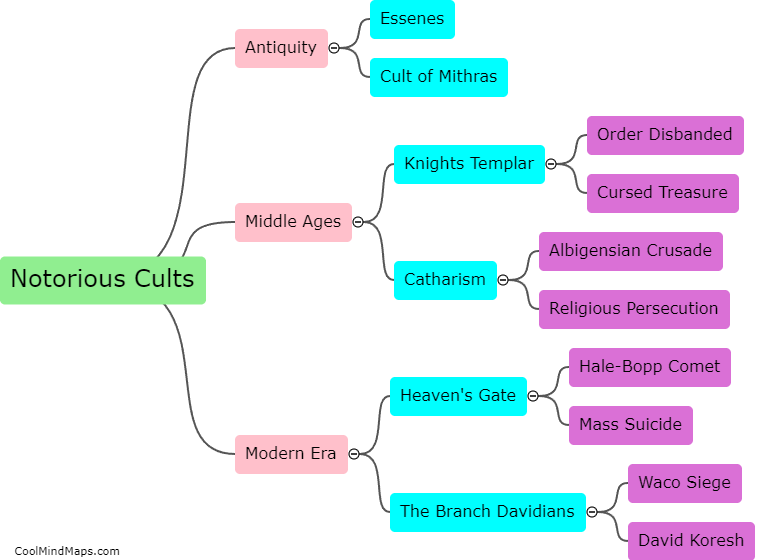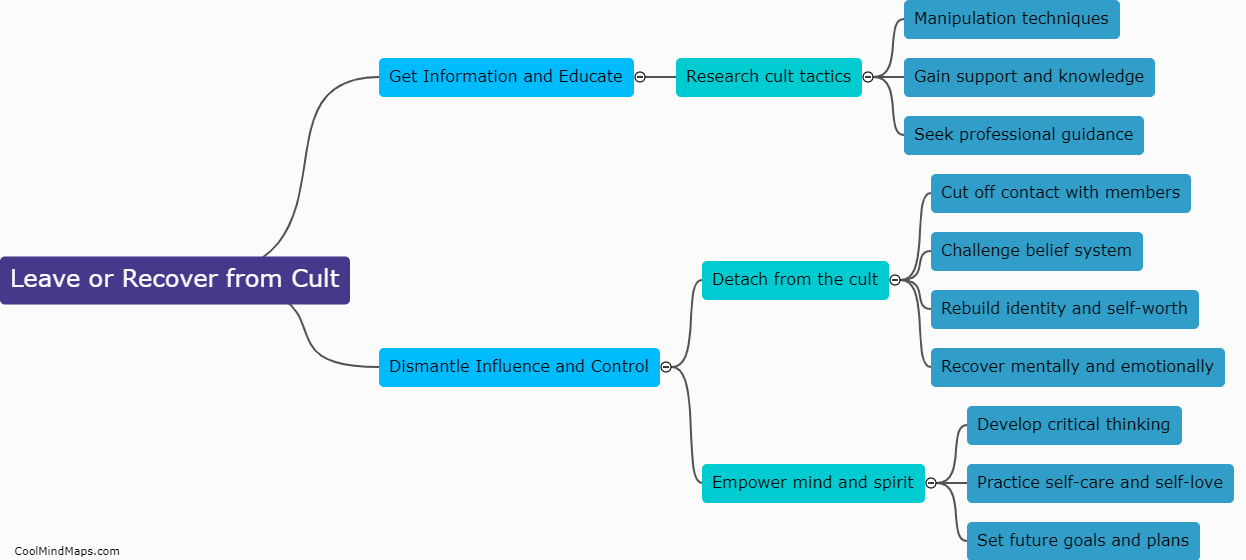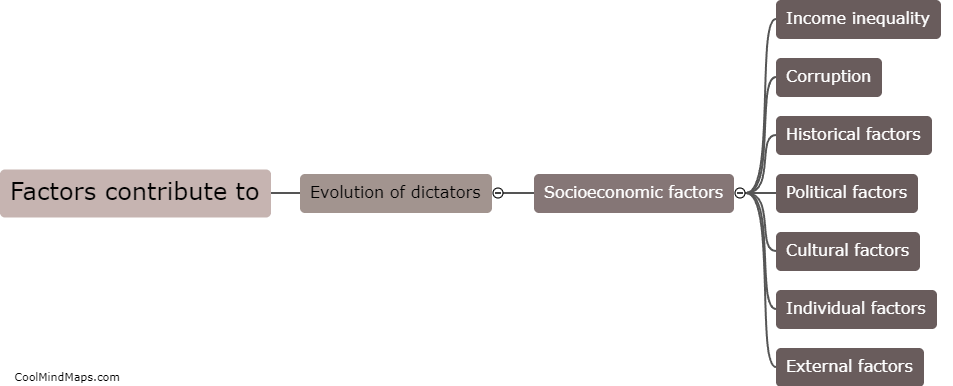What are the psychological effects of being in a cult?
Being in a cult can have significant psychological effects on individuals. Cult members often experience indoctrination and manipulation, leading to a loss of personal autonomy and identity. They may develop an intense dependence on the cult, feeling isolated from their previous support systems, including family and friends. Cults often employ mind control techniques such as social isolation, sleep deprivation, and constant reinforcement of the group's belief system to suppress critical thinking. This can result in cognitive dissonance, where individuals may hold conflicting beliefs but feel unable to express or reconcile them. The psychological effects of being in a cult may include depression, anxiety, paranoia, and a diminished sense of self-worth. Recovering from cult involvement can be a long and challenging process, requiring therapy and support to rebuild one's identity and regain independence.
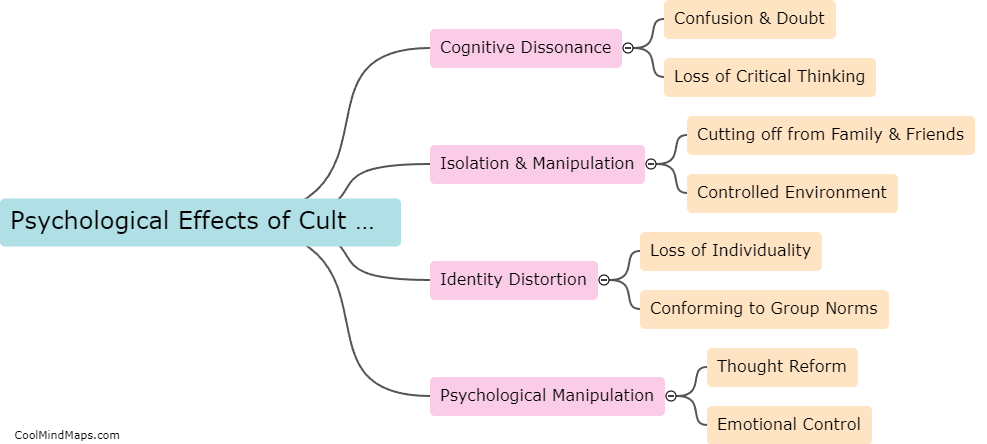
This mind map was published on 19 December 2023 and has been viewed 83 times.
